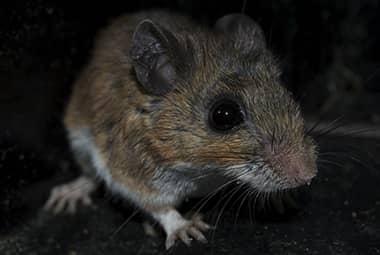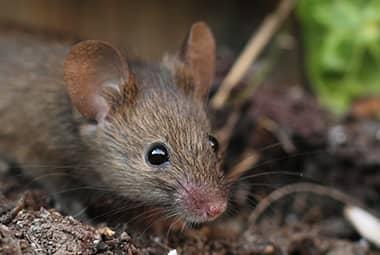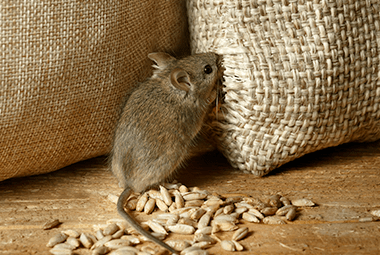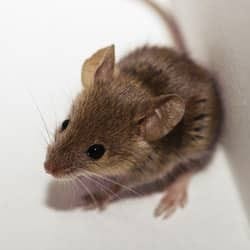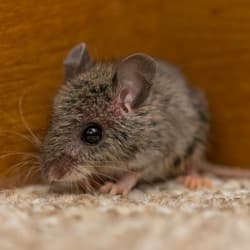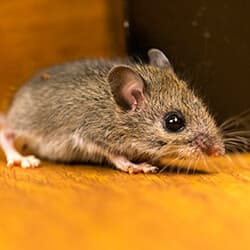Do you consider your home to be secure? If you have locks on the doors and windows, outdoor lights, and possibly a security system or camera set up, you probably feel good about your safety. However, there are intruders lurking about this winter that won’t break in through the front door. If you’ve ever wondered how rodents get inside your Eastern Tennessee home, we have the answer.
Why Rodents Get Inside Eastern Tennessee Homes in the Winter
In the warmer months, rodents are not often a concern. You may see them outside once in a while, but they’re unlikely to get into your home because they don’t need to. So why do they enter homes in the winter? When the weather turns cold, they begin to look for warm shelter. Even if they’ve already found a relatively warm spot to nest, they may decide to move if the area where they currently live doesn’t offer a steady food supply. Chances are, your Eastern Tennessee home offers both shelter and food.
How Rodents Get Inside Eastern Tennessee Homes in the Winter
In order for rodents to make the transition from outdoors to indoors, several things must happen:
- The outside of your home must be appealing enough to make them want to investigate further. A yard that has a lot of areas to hide, plentiful food, and easily accessible water sources will attract rodents.
- Once rodents have made it into your yard, they will move closer to your home. If there are easy ways to access your roof or there are areas around your foundation that allow for entry, they will check them out and, most likely, end up inside your home.
- Once inside, rodents choose a secluded spot to build their nests. Wall voids, attic spaces, and cluttered storage areas are all favorite spots for rodents.
How to Keep Rodents Out of Your Eastern Tennessee Home in the Winter
To prevent a rodent invasion, you need to start by making your property unappealing to rodents:
- Keep your grass trimmed short.
- Remove lawn debris and wood piles so there are fewer places for rodents to hide.
- Cover garbage bins with tightly fitting lids.
- Don’t leave pet food outside.
- Remove bird feeders.
- Make sure there is no standing water on your property.
- Cut back tree limbs so they do not touch the exterior of your home.
You also need to make sure your home doesn’t have any obvious entry points. Smaller rodents, like mice, can fit through a hole the size of a dime, and all rodents have the ability to nibble on a small hole to make it big enough to squeeze through.
- Cover or cap all obvious holes, such as chimneys, vents, and downspouts.
- Check for and repair damaged roof shingles.
- Inspect your foundation for cracks and holes, and fill any that you find.
- Check for gaps around windows and doors, repairing those you discover.
- Repair torn screens.
What to Do if Rodents Get Inside
Sometimes even our best precautions aren’t enough to stop rodents from getting inside. If they do, it’s important to call a pest management professional to help take care of the problem. Russell’s Pest Control can safely eliminate your rodent problem while also identifying how they were able to get inside in the first place, helping to prevent future infestations.
You can also save time by calling Russell’s to do the prevention work for you. Our Power Programs keep your home safe from over 30 pests. Give us a call to learn more.
